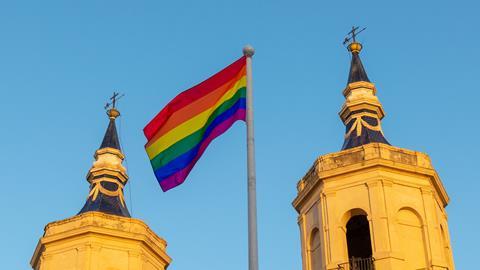Veronica Zundel shines a light on the impact of disagreements around beliefs and practices in the Church.
Christians are reportedly the most persecuted religious minority on earth. This is of course a tragedy, just like persecution of any other group. Nevertheless, as always, God is able to bring good out of disaster: as the Church father Tertullian said: “The blood of the martyrs is the seed of the church.” I remember hearing in my early days as a Mennonite about the Meserete Kristos church in Ethiopia, worshipping secretly during the military junta, and now numbering nearly 1,200 churches and almost 400,000 members. Mennonites, hounded by both Catholics and Protestants in the 16th century, have always known that suffering can foster growth.
There is another form of persecution, or at least discrimination, that worries me just as much. It is the harassment or exclusion that we Christians can impose on one another within the Church, based on disagreements about belief or practice. Do we, in fact, have freedom of religion within our own churches? This question is raised by the recent adoption by the Church of England of prayers of blessing for same-sex couples. Now this is a long way from actually performing same-sex marriages; the prayers are entirely voluntary, so no clergy are obliged to use them – they can simply say to a couple: “We don’t offer that service here.”
‘Yet three prominent evangelical churches have responded by setting up their own alternative scheme to train laymen (yes, you read that right, only men) to preside at services including communion, with a view to ordination later — in effect, setting up a separate church body with separate clergy purely to avoid being part of a church that a) has prayers to bless gay relationships and b) ordains women.’
The need for acceptance
Wherever you stand on this issue, surely it is possible to have diverse opinions and even diverse practices within one church without name-calling or one party flouncing off and saying it will have nothing to do with the other? And can a question about which Jesus said precisely nothing actually be so important that it is worth dividing the Church? In the early Church days, when Paul and others were writing their epistles, there were Christians who refused to eat meat bought from the market because it would have been dedicated to idols, and others who felt happy to eat anything offered to them, because idols were just imaginary anyway and could do no harm to the sanctified people of God. Paul urged the two groups to accept rather than criticise or shun each other.
Can a question about which Jesus said precisely nothing actually be so important that it is worth dividing the Church?
Yes, it is important to keep the purity of the Church. If some members are practising or advocating flagrant sin, we may have to exercise church discipline over them by, for instance, excluding them from communion. Mennonites have been only too ready to do this over the centuries, shunning family members and friends for sometimes the slightest of offences. But remember that the origin of shunning was that it was a non-violent alternative to what the mainstream churches were doing to those they saw as heretics: burning (practised by Catholics) or beheading (by Protestants) – I’ll leave you to decide which is the most merciful. The object of shunning was not to get rid of the miscreant, but to bring them to repentance and reconciliation with the Church – something which is rather more difficult if you have already killed them.
Getting to the heart of the matter
One of the root problems is that if group A (the privileged – say men or heterosexuals) see group B (the oppressed – say women or homosexuals) being given more liberty and opportunities than before, then group A perceive it as taking away their own rights. That isn’t the case, of course, it is simply extending those rights to a wider range of people; but some people, especially those who have enjoyed favoured status for a long time, simply don’t want to share. Group A, if they are Christians, will couch their privilege in all sorts of biblical language and make what they consider a watertight scriptural case for it. However, it is equally possible for group B to make a biblical case for their stance, and often their case will be based on the broad sweep of scripture, its trajectory towards greater inclusivity and liberation, rather than picking a few ‘gotcha’ verses. In other words, they focus on the spirit rather than the letter of scripture, and I seem to recall a certain Paul observing that the letter kills, but the Spirit gives life…
Why can’t we all just love each other? Why can’t we start by listening to each other? These things are complex, and perhaps we will never reach agreement, but surely we can accept each other as genuine Christians who simply interpret scripture differently. Then we will truly have freedom to worship and live as God leads.
Note from editor: Look out for Veronica’s writing in a new column in 2025!


































1 Reader's comment